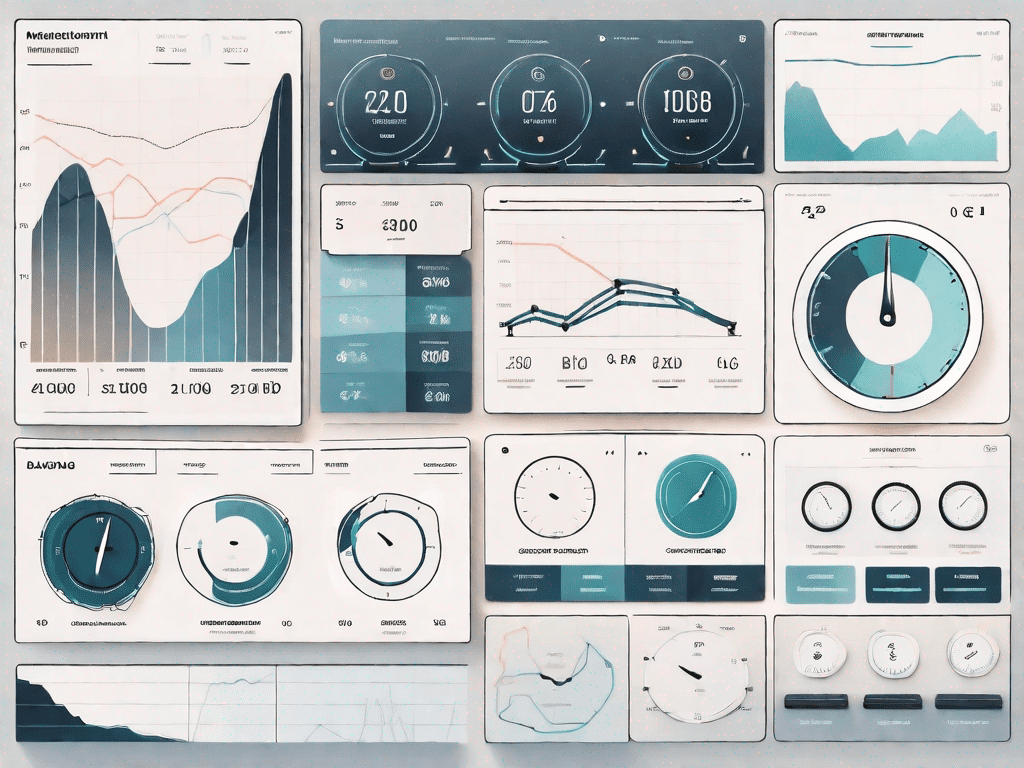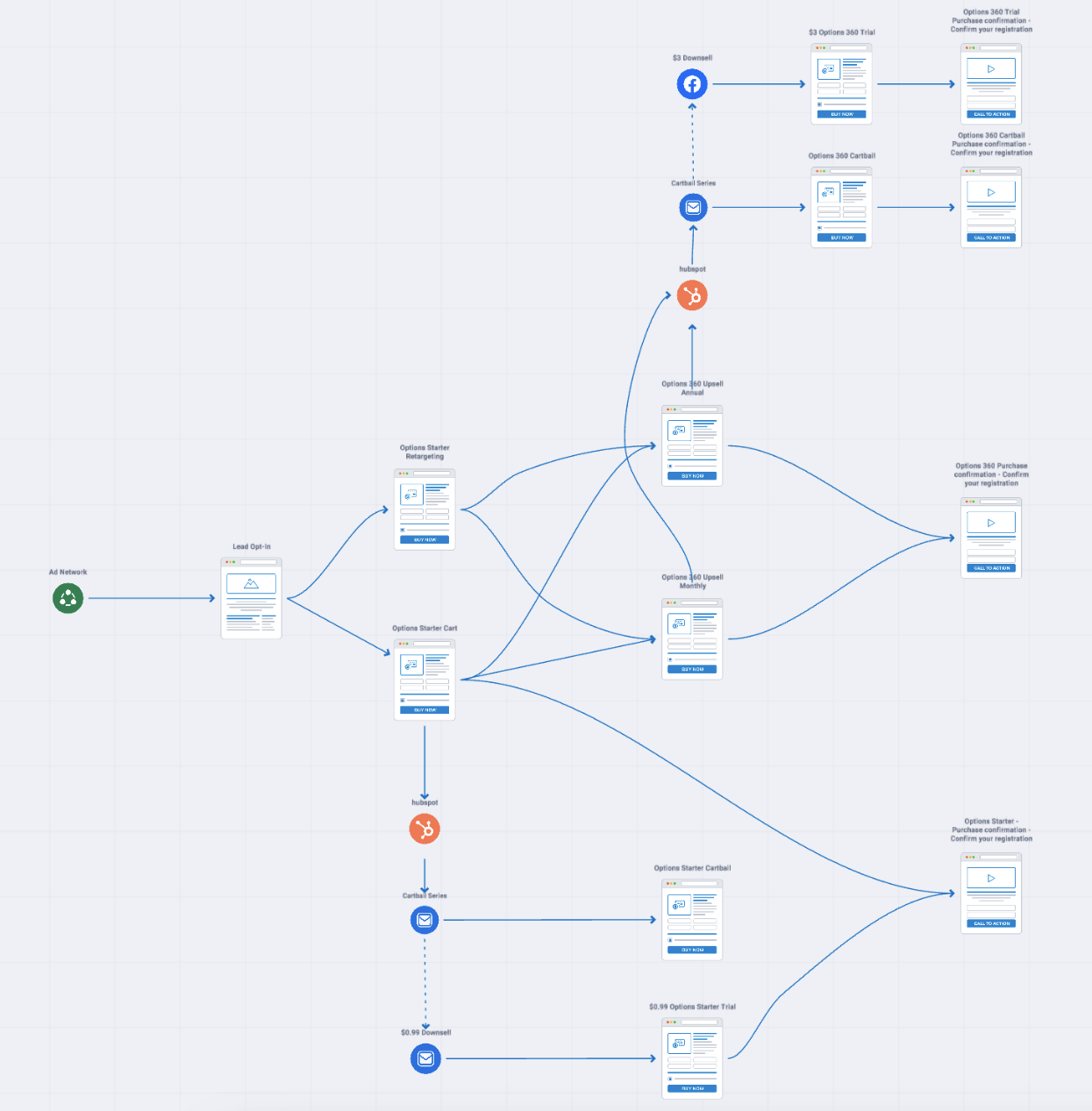Running a successful ecommerce business requires effective promotion strategies, and one of the most powerful tools at your disposal is pay-per-click (PPC) advertising. By understanding how to optimize your PPC campaigns, you can drive targeted traffic and increase your chances of making sales. In this article, we will explore the key steps to optimize your PPC campaigns for ecommerce promotions.
Understanding PPC Campaigns for Ecommerce
Before diving into optimization techniques, let’s first clarify what PPC is and why it is important for ecommerce businesses. PPC stands for pay-per-click, a digital advertising model where advertisers pay a fee each time their ad is clicked. This form of advertising allows businesses to display their ads on search engines and other relevant websites, ensuring their brand is visible to potential customers.
What is PPC?
PPC is an auction-based advertising system where businesses bid for ad placement on search engine result pages or websites. When a user searches for a keyword related to your product or service, your ad may appear at the top or bottom of the search results. If the user clicks on your ad, you pay the bid amount. PPC advertising platforms, such as Google Ads, offer advanced targeting options, allowing you to reach your ideal audience.
Let’s delve deeper into how PPC works. When you set up a PPC campaign, you choose relevant keywords that are related to your business. These keywords are what trigger your ads to appear when users search for them. The bidding process comes into play when multiple advertisers target the same keyword. Advertisers bid on how much they are willing to pay for each click on their ad. The higher the bid, the more likely your ad will be displayed prominently in search results.
It’s important to note that PPC is not just limited to search engine advertising. Many websites also offer advertising space where you can display your ads. These websites are often related to your industry or target audience, ensuring that your ads are seen by the right people. This expands your reach beyond search engine results and allows you to tap into niche markets.
Importance of PPC in Ecommerce
PPC advertising is crucial for ecommerce businesses for several reasons. Firstly, it provides immediate visibility in search results, which can be especially advantageous for new businesses looking to outrank competitors. When you launch a new ecommerce store, it takes time for your website to organically rank high in search results. With PPC, you can bypass this waiting period and instantly appear at the top of relevant search queries, driving traffic to your website.
Secondly, PPC allows you to precisely target your audience based on specific demographics, interests, and search intent. This level of targeting ensures that your ads are shown to people who are more likely to be interested in your products or services. For example, if you sell athletic shoes, you can target users who have shown an interest in fitness or sports-related activities. This increases the chances of converting clicks into actual sales.
Lastly, with PPC, you have control over your budget, allowing you to set daily or monthly spending limits. This flexibility is especially beneficial for ecommerce businesses that have varying levels of inventory or seasonal promotions. You can allocate more budget during peak seasons or reduce spending during slower periods. This level of control ensures that you are maximizing your advertising budget and getting the most out of your PPC campaigns.
In conclusion, PPC campaigns are a powerful tool for ecommerce businesses to increase their online visibility, reach their target audience, and control their advertising budget. By understanding the intricacies of PPC and implementing effective strategies, ecommerce businesses can drive more traffic to their websites, generate leads, and ultimately increase sales.
Setting Up Your PPC Campaign
Before optimizing your PPC campaigns, it’s essential to set them up correctly. Here are two key steps to get started:
Choosing the Right Keywords
Keywords play a vital role in PPC campaigns. Start by conducting thorough keyword research to identify the terms your target audience is likely to use. Look for both general and long-tail keywords that align with your products or services.
When conducting keyword research, consider the search volume and competition for each keyword. High search volume keywords indicate a larger audience, but they may also have more competition. On the other hand, long-tail keywords often have less competition and can lead to higher conversion rates.
Once you have a list of relevant keywords, organize them into ad groups to ensure better ad targeting. Ad groups allow you to group similar keywords together, making it easier to create targeted ads and improve your campaign’s overall performance.
Creating Effective Ad Copy
Compelling ad copy is crucial to grab the attention of potential customers and encourage them to click on your ads. When crafting your ad copy, keep the following tips in mind:
1. Write clear and concise headlines that highlight the unique selling points of your products or promotions. Your headline should immediately capture the reader’s attention and convey the value they can expect from your offering.
2. Use compelling language and include relevant keywords in your ad copy. This helps to improve the ad’s relevance and increases the chances of it being shown to the right audience.
3. Incorporate a strong call-to-action to prompt users to take the desired action, such as making a purchase or signing up for a newsletter. A clear and compelling call-to-action can significantly improve the click-through rate and overall conversion rate of your PPC campaign.
Remember to continuously test and optimize your ad copy to find the most effective messaging for your target audience. A/B testing different variations of your ad copy can help you identify which elements resonate best with your audience and drive better results.
By following these steps and continuously monitoring and optimizing your PPC campaigns, you can maximize your chances of success and achieve your advertising goals.
Optimizing Your PPC Campaigns
Optimizing your PPC campaigns is an ongoing process that involves constant monitoring and refinement. It is crucial to stay ahead of the competition and ensure that your ads are performing at their best. Here are two optimization techniques to maximize your campaign’s performance:
Adjusting Bids for Better ROI
Bid adjustments allow you to optimize your ads based on various factors, such as device type, location, and time of day. By analyzing your campaign data regularly, you can identify areas where you can increase or decrease bids to improve return on investment (ROI).
For example, let’s say you notice that mobile users convert at a higher rate compared to desktop users. This valuable insight indicates that mobile traffic is more likely to result in conversions. In this case, consider increasing your bid for mobile devices to capture more valuable leads.
On the other hand, if you find that certain locations or times of day are not generating significant results, you might consider decreasing your bids for those specific segments. By doing so, you can allocate your budget more effectively and focus on the areas that drive the most conversions.
Utilizing Ad Extensions
Ad extensions are additional pieces of information that appear alongside your ads, providing additional context and driving higher engagement. They offer an excellent opportunity to make your ads more compelling and increase their visibility.
There are various types of ad extensions available, each serving a different purpose. One popular option is site links, which allow you to add additional links to specific pages on your website. By including relevant site links, you can guide users to the most relevant sections of your site, increasing the chances of conversion.
Another useful ad extension is the call extension, which adds a phone number to your ad. This feature makes it easier for potential customers to contact you directly, leading to more inquiries and potential sales.
Review extensions are also highly effective in building trust and credibility. By showcasing positive reviews and testimonials from satisfied customers, you can instill confidence in your target audience and encourage them to choose your products or services.
By utilizing ad extensions effectively, you can enhance the visibility and click-through rate of your ads. This, in turn, boosts your chances of generating sales and conversions.
Remember, optimizing your PPC campaigns is an ongoing process. Continuously monitor your campaign performance, test different strategies, and refine your approach based on data-driven insights. By staying proactive and adapting to changes in the market, you can ensure that your PPC campaigns remain effective and drive the desired results.
Tracking and Analyzing Your PPC Campaigns
Proper tracking and analysis are essential to evaluate the effectiveness of your PPC campaigns. By closely monitoring the performance of your ads and keywords, you can make data-driven decisions that will optimize your campaigns and maximize your return on investment. Here are two key aspects to consider:
Importance of Conversion Tracking
Conversion tracking is vital for understanding which ads and keywords are driving actual sales or desired actions on your website. By setting up conversion tracking, you can measure the ROI and identify any optimization opportunities. It allows you to track and analyze various conversion metrics, such as the number of purchases, newsletter sign-ups, or contact form submissions.
For example, let’s say you have an e-commerce website selling shoes. By implementing conversion tracking, you can determine which specific ads or keywords are leading to the most purchases. This information is invaluable as it helps you allocate your budget effectively and focus on the campaigns that generate the highest revenue.
Furthermore, conversion tracking enables you to identify any bottlenecks in the conversion process. For instance, if you notice a high number of abandoned shopping carts, you can investigate the reasons behind it and make necessary improvements to increase your conversion rate.
Interpreting PPC Analytics
Analyzing the data provided by the PPC analytics can give you valuable insights into the performance of your campaigns. It goes beyond simply tracking conversions and delves into the intricacies of user behavior and engagement. By interpreting PPC analytics, you can uncover patterns, trends, and correlations across various metrics, such as click-through rate (CTR), cost per click (CPC), and conversion rate.
For example, let’s say you notice a high CTR but a low conversion rate for a particular ad group. This could indicate that your ad copy is enticing enough to attract clicks, but it fails to deliver on the promises made in the ad. By identifying this discrepancy, you can refine your ad copy to better resonate with your target audience and improve your conversion rate.
Moreover, PPC analytics can help you optimize your targeting by providing insights into the demographics, locations, and devices of your audience. This information allows you to tailor your campaigns to reach the most relevant audience and allocate your budget more effectively.
By continuously monitoring and analyzing PPC analytics, you can stay ahead of the competition, identify areas of improvement, and make data-driven decisions to optimize your campaigns.
Advanced PPC Strategies for Ecommerce
Once you have mastered the basics of PPC campaigns, it’s time to explore advanced strategies to take your ecommerce promotions to the next level. Here are two advanced techniques:
Remarketing Strategies
Remarketing allows you to target previous website visitors and display tailored ads to encourage them to complete a desired action. Set up customized remarketing lists based on user behaviors, such as products viewed or cart abandonment. Use compelling ad copy and offers to entice users back to your website, increasing the likelihood of conversion.
Leveraging Product Listing Ads
Product Listing Ads (PLAs) are a highly effective PPC format for ecommerce businesses. PLAs showcase your products at the top of search results, displaying an image, title, price, and your store name. By optimizing your product feed and aligning it with relevant keywords, you can maximize the visibility and click-through rate of your PLAs. Monitor performance regularly and adjust bids and product targeting to maximize ROI.
In conclusion, optimizing PPC campaigns for ecommerce promotions requires a comprehensive understanding of the advertising platform and constant monitoring and refinement. By following the steps outlined in this article, you can improve the effectiveness of your PPC campaigns, drive targeted traffic, and ultimately boost your ecommerce sales.



